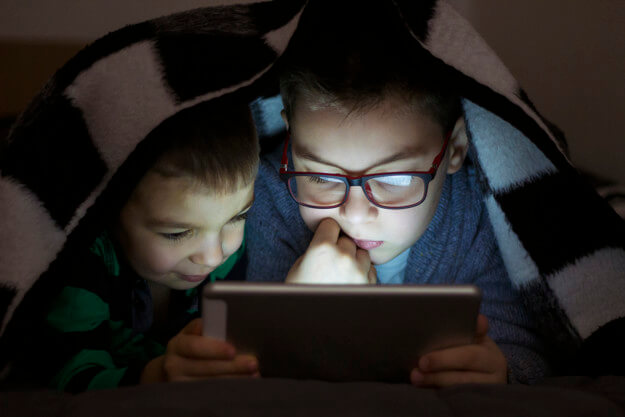Technology now is more portable than ever. It can be used and viewed anywhere, at any time. With no natural end time to watching or playing a game, they are harder to manage. With capacity to be interactive, the feedback that is given is what can create the addiction. Yet use of the word addiction should not be used in place of something that is just ‘popular and engaging’. An addiction is very different, being something pathological.
Behavioural addiction
Children find it difficult to stop checking, scrolling, clicking and watching modern mobile technology because it is designed to be compelling. This behavioural addiction is easy for children to fall into since they do not have the capacity to consider the costs and benefits of their behaviour. Yet those who create the technology are aware of the potential impact of their use. Steve Jobs refused to allow an iPad in his home, and there is a school near Silicon Valley that is almost entirely free of technology, and is where three-quarters of the students have parents who work in the technical industry.

Internet addiction
China calls the internet ‘electronic heroin’ and feels it’s the biggest threat to its teenagers. It has been suggested that more than 60 per cent of 11 to 17-year-olds take their tablet, smartphone or laptop to bed with them and use these devices to talk to friends online, play games and watch films. This has lead to almost four in 10 young people afraid they may be addicted to the internet.
For some children, losing access to the internet makes them feel insecure and lost. They prefer the company of the internet than being with other people, without realising that the internet controls their actions, and even if they are aware, it is not enough for them to change their behaviour.
The internet can be a great place to learn and to socialise, but it is worrying that so many children feel that they are addicted to it. There is a lot of pressure on young people, including from their peers, to always be online, and the 24/7 nature of children’s access to the internet means that they can get sucked into online games or begin to feel unable to function if they cannot keep in constant contact with their friends or to look things up on the internet.
Studies show that globally about three per cent of children have a genuine internet addiction, but there will be many more with problem behaviour that affects their school-work, their relationships with family members and that creates an imbalance in how they live their life. South Korea has reported that 30 per cent of the population under 18 are at risk of internet addiction (being on the internet more than 6 hours a day), the highest rate of internet addiction in the world. The government sees it as a national health crisis, with one in every 10 South Korean child an addict.

Gaming
Children are becoming as addicted to gaming as some adults are to cocaine. Brain imaging research has shown that devices affect the brain’s frontal cortex like a Class A drug. Technology use can be so hyper-arousing that it raises dopamine levels as much as sex.
Having personal devices from a young age has led to the development of an unhealthy attachment to technology. This means that children are less interested in things they may have once enjoyed, such as reading or sport. The addiction can also make them stay awake until the early hours of the morning, leading to sleep deprivation and irritability.
Parents will introduce their young children to games because they believe they may be educational for the child. Yet if a child is allowed to play for hours, staying up late etc. their behaviour is likely to deteriorate and any attempts to take the game away will be met with temper tantrums, with children quickly becoming angry, screaming and lashing out, kicking and even biting if denied their fix.
Dealing with children’s addictions
Evidence shows internet addiction is damaging developing brains, effecting the frontal lobes which are important for critical analysis. In 2008, China, became one of the first countries to declare internet addiction a clinical disorder. People who spend more than six hours online doing something other than work or study, and who feel bad when unable to access a computer, have an internet addiction disorder. This has led to the creation of hundreds of rehab camps within China designed to treat addicted youth.
The rehab camps are a last resort for many parents as they attempt to break the addiction to the internet and internet games with a return to school to become more academically capable. Typically, children spend three to four months at a camp receiving treatment. Treatment includes participating in rigorous exercises, medication and therapy. In many ways it is like a boot camp. The harsh conditions are believed to provide a discipline that the children need. The centre encourages parents to stay at the camps, and families often participate in consultations with authorities. The challenge for families is when the child returns home. Here they are not supposed to play games, but they still have to use the Internet for academic research.
China is not the only country grappling with Internet addiction. South Korea has a network of 12-day boot camps across the nation to offer children a digital detox. There is exercise and the counsellors encourage human interaction to get them socialising again and to think about a future beyond technology, to show them other possibilities and ultimately to try and bring back dreams and hopes that have been buried by their addictions. The children are also taught ways to manage their emotions and the desire to use the internet so they can continue to use it when they return home. As in China, the children also undergo intense one-on-one counselling to work out any underlying causes of addiction like family conflicts or personality issues.
